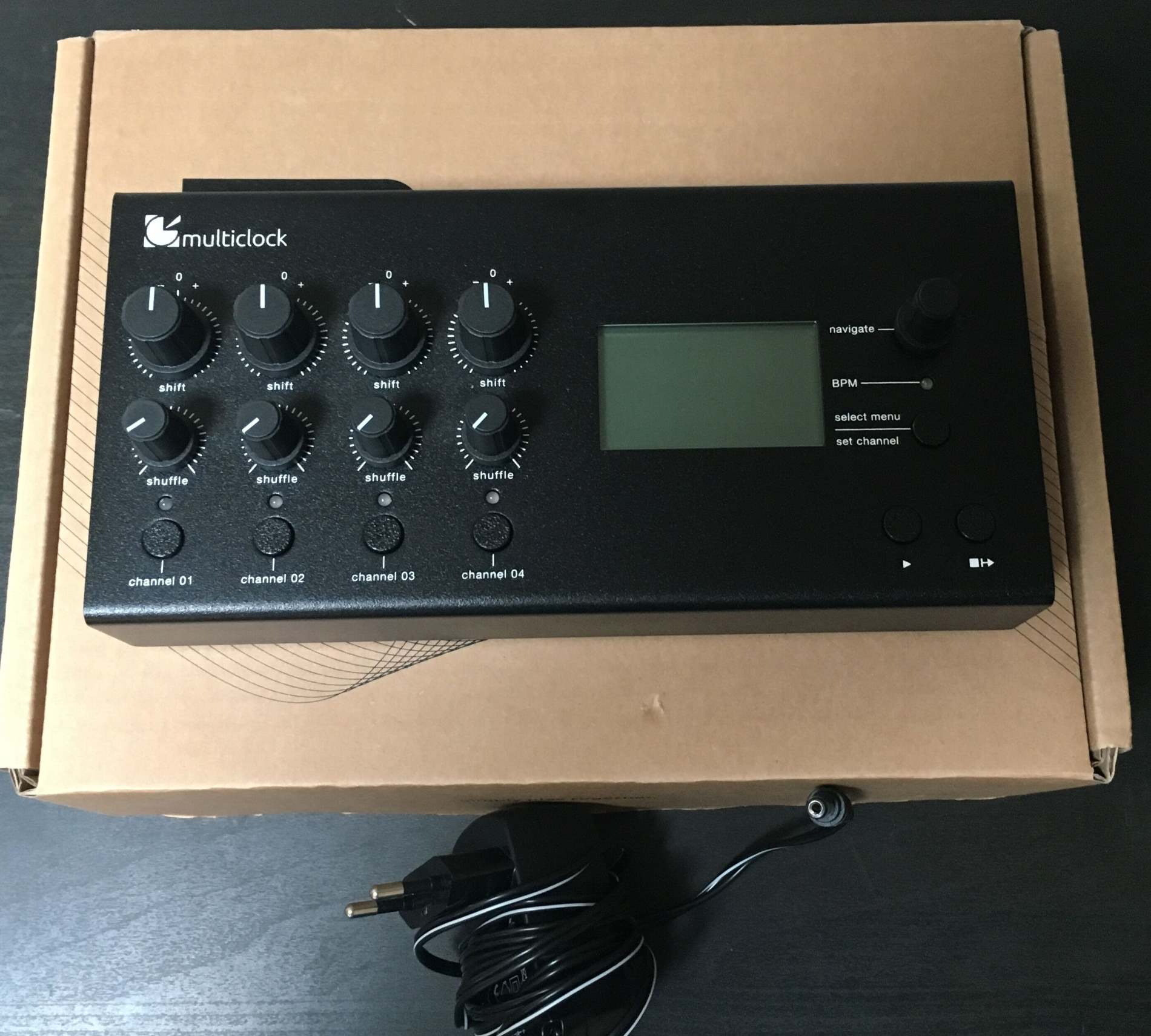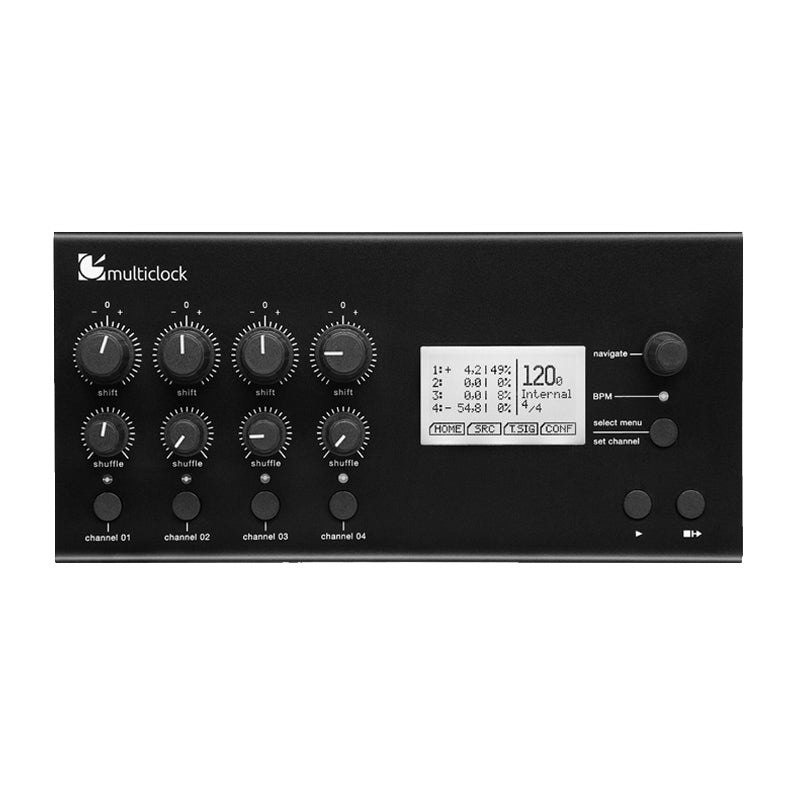

I was thinking about this for a lot of time now, but there is still one thing where I cant wrap my head around: Hey Afturmath, thank you for clarifying and helping me out. My setup is reasonably complex, and it wouldn't be possible without Multiclock. I also use Ableton CV Tools in conjunction with MIDI since my clocking from Multiclock is so tight. The 4 Multiclock out ports are sent to 8 MIDI destinations including 6 hardware sequencers, one of which uses all 16 channels. The Multiclock also merges two keyboard/CC controllers on the 5-pin input (via MIDI Solutions Merge) and routes them to either my main hardware sequencer or back into Ableton via USB, depending on the MIDI out channel I select on each synth. Ableton USB MIDI messages are routed to 5-pin through various Multiclock port/channel mappings on external instruments in MIDI tracks. In my setup, Ableton is the clock master syncing Multiclock via audio/plugin. Instead I decided I'm totally satisfied using Ableton and Push 2 as my master sequencer because of the flexibility to customize everything with Max.

I am more shure now about the ERM MulticlockI was looking into the Polyend SEQ and stopped following the updates to the Deluge. You should check it out, in my opinion, it is the best sequence out there. You can even use Multiclock as the master clock, turn off MIDI-thru (and/or clock out if it has the specific option) on the Deluge, and clock the Deluge over MIDI while simultaneously forwarding its CC/note data to other synths through the Multiclock input port. MIDI message latency from the Deluge through Multiclock over 5-pin should be less than DAW latency via USB, and you can still adjust the individual channel clock offset to compensate. As an example, Deluge output to ch 1 could redirect to Multiclock port 1 ch 4 and port 2 ch 6, then you could change Deluge to ch 2 and have Multiclock redirect to port 3 ch 1, and Deluge ch 3 could redirect to port 4 on all channels. The options onboard the Multiclock allow you to configure MIDI channel and port redirect from both USB and the 5-pin MIDI input (simultaneously and separately).
#Multiclock erm power supply windows
This way, I could work with and without DAW and there would be no usb windows timing issues I guess.I'm not sure how the Deluge works, but I assume it can only send MIDI out to 1 channel at a time. The deluge also has an audio trigger in so I could slave it to ableton too. Do you think that is possible? From what i read, I am not sure if only the USB input can merge note data with the clock. I was thinking about merging the Note Data / CC from the deluge with the ERM through the MIDI in port of the ERM Multiclock. I would have the Synthstrom Deluge for that. Thank you so much! I am also thinking about using my external sequencer instead of ableton for note Data and Midi CC. Other devices that only need note data and clock and maybe 1 or 2 occasional CCs share a port using different channels via a MIDI Solutions Quadra-Thru. They are each on a dedicated Multiclock port so their constant stream of CC's doesn't impact another MIDI channel. The two sources are synths which also have control plugins in Ableton to record automation. As an example, in my setup I have 8 MIDI destinations and 2 sources, both of which are also destinations (using different channels and no thru-routing to prevent loops). Because you have 4 separate USB-to-MIDI converters (each port is separate), it gives you the flexibility to isolate busier devices from others. You must also adjust Ableton's "external instrument" device latency to compensate and get everything back on-grid, but it's a one-time exercise that should yield tight, consistent timing between all hardware and virtual instruments across sessions.Īs for the number of messages, the limitation is the baud rate of each channel. The benefit of using the Multiclock for your USB-MIDI interface for messages is that you can use the panel interface to offset the clock timing of each channel to align it to your latent MIDI messages. While this ensures the clock is in time, MIDI messages are still passed from Ableton via USB and subject to all the latency of USB translation. The start/stop impulses and sync signal from the ERM plugin to the Multiclock via audio is slaving the Multiclock's internal MIDI clock, which is extremely "tight" meaning low jitter (timing drift from pulse to pulse).

The clock from the Multiclock and MIDI messages from Ableton are two separate generators. I worked with friends' Sync-Gen II and Multiclock on and off for a year or so before getting my own. I won't pretend to be an expert, but I spent years dealing with MIDI and analog sync issues before getting a Multiclock last year.


 0 kommentar(er)
0 kommentar(er)
